Contributed by Melanie Bateman, CABI Switzerland
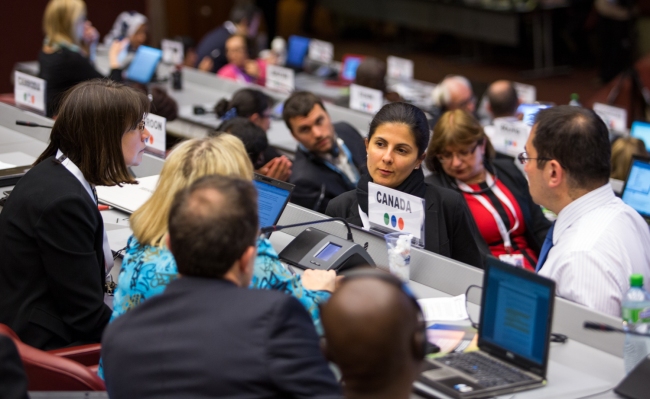
Delegates of top international conventions set a more collaborative regulation agenda (Image: Secretariat of the Basel, Rotterdam and Stockholm Conventions)
Geneva– The three conventions that govern chemicals and hazardous waste safety at the global level are, for the first time, convening jointly in an historic back-to-back meeting of the parties in Geneva from 28 April to 10 May, 2013. The joint meeting aims to strengthen cooperation and collaboration between the conventions, with a view to enhance the effectiveness of their activities on the ground. Nearly two thousand participants from more than 160 countries will attend the two-week long meeting.
Beginning today, the sixth meeting of the Conference of the Parties to Rotterdam Convention on the Prior Informed Consent Procedure for Certain Hazardous Chemicals and Pesticides in International Trade will be held individually to deal with its own specific topics.
 The Rotterdam Convention regulates information about the export/import of 43 hazardous chemicals listed in the Convention’s Annex III, 32 of which are pesticides (including 4 severely hazardous pesticide formulations) and 11 of which are industrial chemicals. This meeting will consider the possible addition of five chemicals, among them the pesticides azinphos-methyl and liquid formulations containing paraquat dichloride at, or above, 276 g/L.
The Rotterdam Convention regulates information about the export/import of 43 hazardous chemicals listed in the Convention’s Annex III, 32 of which are pesticides (including 4 severely hazardous pesticide formulations) and 11 of which are industrial chemicals. This meeting will consider the possible addition of five chemicals, among them the pesticides azinphos-methyl and liquid formulations containing paraquat dichloride at, or above, 276 g/L.
This meeting follows last week’s individual conferences for both the Stockholm and Basel Conventions. The Stockholm Convention on Persistent Organic Pollutants currently regulates 22 toxic substances – 15 of which are pesticides – that are persistent, travel long distances, bioaccumulate in organisms, and are toxic. The Basel Convention on the Control of Transboundary Movements of Hazardous Wastes and their Disposal regulates the export/import of hazardous waste and waste containing hazardous chemicals.
The two weeks of meetings will culminate in a ministerial segment at the end of the week on 9 and 10 May, with over 80 Ministers and Deputy Ministers scheduled to attend.
For more information, see also the 2013 COPs website: synergies.pops.int.
Plantwise recognises that the pesticides identified by these international agreements can have serious negative impacts on human health and/or the environment. Consequently, we are in the process of establishing a policy on pesticide use which will guide how we advise plant doctors, such as not recommending products which appear on restricted lists including the Stockholm Convention on Persistent Organic Pollutants, the Rotterdam Convention on the Prior Informed Consent Procedure for Certain Hazardous Chemicals and Pesticides in International Trade, and the Montreal Protocol on Substances that Deplete the Ozone Layer, as well as pesticides listed as Classes Ia and Ib by the WHO Recommended Classification of Pesticides by Hazard.
1 Comment
Leave a Reply
Related News & Blogs
Post-registration pesticide reviews: Experiences, learnings and best practices
CABI’s PlantwisePlus programme recently hosted a webinar to raise awareness and potential solutions to the challenges around post-registration pesticide reviews – a vital stage in the review process that helps ensure compliance with safety regulations…
9 July 2025

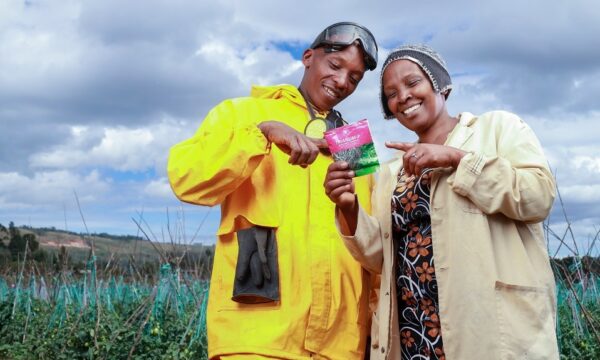
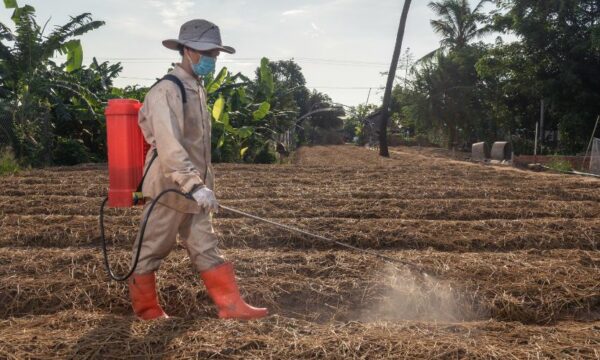
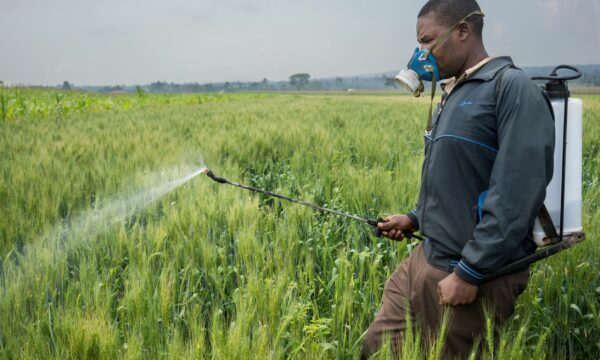
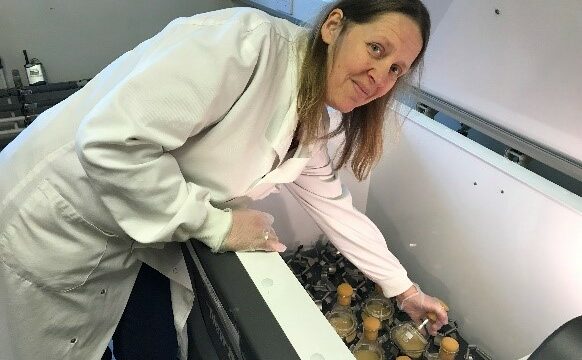
Hazardous pesticide Methamidophos has been added to the Rotterdam Convention this month. 4 New Chemicals Listed under the Stockholm and Rotterdam Convention